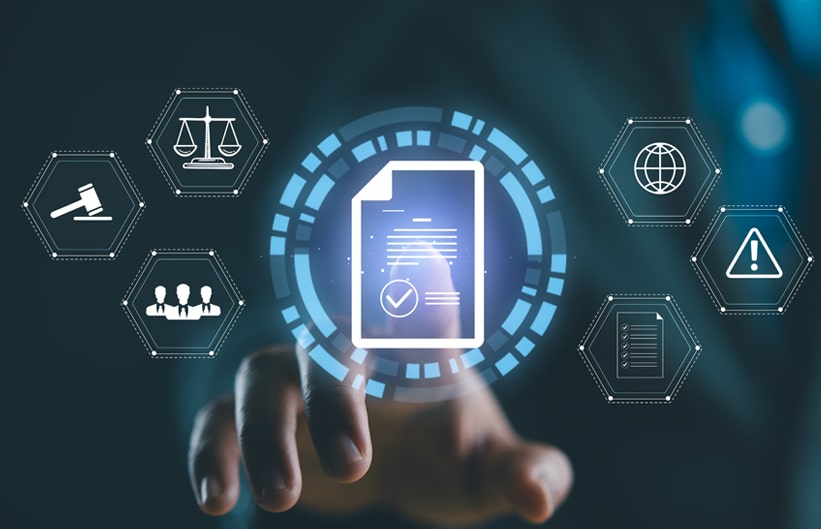Abstract
The Carbon Border Adjustment Mechanism (CBAM) is a transformative EU policy designed to curb global emissions by imposing carbon-related costs on high-emission imports, creating a level playing field between EU industries and global competitors while addressing the critical issue of carbon leakage and supporting a fairer, more sustainable trade.
Introduction
The Carbon Border Adjustment Mechanism (CBAM) was introduced by the European Union (EU) Commission as part of the European Green Deal, a new policy initiative. This approach intends to limit the risk of carbon leakage while maintaining competitive pricing in the European market (European Commission, 2019). CBAM is one of several policy initiatives recommended to meet a newly defined emissions reduction target of 55% below 1990 levels by 2030, with the ultimate objective of becoming carbon neutral by 2050. To accomplish this ambitious climate objective, current emissions must be significantly and rapidly reduced, and CBAM is intended to help with the transition away from free allowances under the EU Emissions Trading System (EU-ETS).
What Goods will be Covered by CBAM?
The CBAM applies to specific goods imported into the European Union from outside its borders, as outlined in Regulation (EU) 2023/956 established on May 10, 2023, as part of the EU's Fit for 55 Package. The CBAM aims to align import prices with their carbon content and encourage foreign producers and EU importers to reduce emissions.
The CBAM will first apply to imports of specific goods and some precursors that produce a lot of carbon and are at risk of carbon leakage. These include cement, iron and steel, aluminium, fertilizers, electricity, and hydrogen.
CBAM Reporting Obligations During the Transitional Period
The report to be submitted quarterly should contain the following mandatory requirements:
- Total quantity of goods imported during the preceding quarter
- Total embedded direct and indirect emissions
- The carbon price due in the country of origin for the embedded emissions
During the transitional period, the requirements for importing goods under the CBAM include:
Submit CBAM reports every quarter: Importers of goods, or their indirect customs representatives, are required to report the embedded greenhouse gas (GHG) emissions associated with their imports, including both direct and indirect emissions, on a quarterly basis. The submission of this report must occur no later than one month following the conclusion of each quarter.
Register in CBAM Transitional Registry: Created by the EU Commission to help traders prepare and submit the CBAM report, this registry also facilitates communication among the Commission, competent authorities, national customs authorities, and traders.
CBAM Implementation and Timelines
The Transition Period October 2023 –December 2025
- October 2023 – Implementation of Regulation
- January 2024 – First CBAM Reporting
- 2025 – Assessment feasibility/ proportionality of scope extension post 2026, including to a (1) limited set of EU ETS sectors at risk of carbon leakage, and (2) selected number of downstream products which contain a high share of basic CBAM goods
- 31 December 2025 – End of Transitional Period
- 2026 – Start of gradual phase-in of CBAM/phase-out of free ETS allocation
- 2027-2032 - Full Implementation Phase until CBAM applies to all imported products.
CBAM will apply in its definitive regime from 2026
- EU importers of CBAM-covered goods must register with national authorities.
- They can purchase CBAM certificates from these authorities.
- Certificate prices are based on the weekly average auction price of EU ETS allowances (€/tonne of CO2).
- Importers must declare embedded emissions and surrender the corresponding number of certificates annually.
- If a carbon price has been paid during production, importers can deduct that amount from their certificate obligations.
Simple Steps for Businesses During CBAM Transition
1. Assess Impact:
- Find out which of your products fall under CBAM.
- Check where they come from.
- Look at how much you import.
2. Collect Data:
- Set up a way to gather information on production sites and emissions.
- Identify your main suppliers of CBAM products.
3. Set Up Reporting:
- Choose a team in your organization to handle CBAM compliance.
4. Gather Import Data:
- Collect actual import amounts for the relevant quarter, working with customs brokers.
5. Prepare Report:
- Connect import amounts to production sites and emissions data.
- Submit your first CBAM report by January 31, 2024, using the CBAM Transitional Registry.
The Importance of Accurate Emissions Reporting
By the third quarter of 2024, industries exporting to the EU will no longer be able to rely on the EU’s default values for emissions. Instead, they must report the actual embedded emissions within their goods, aligning with EU standards to avoid penalties. This shift is expected to spur greater transparency and drive meaningful reductions in carbon footprints across global supply chains
Stay Ahead with iLenSys: CBAM Compliance Made Simple
The Carbon Border Adjustment Mechanism (CBAM) is here to regulate carbon emissions linked to imported goods into the EU. Starting in 2026, businesses will face carbon costs on high-emission products like steel, aluminium, cement, fertilizers, and electricity.
At iLenSys, we offer specific solutions to ensure you’re prepared:
- Expertise in compiling and submitting CBAM reports that meet EU standards.
- Strategies to reduce carbon emissions and minimize financial impact.
With years of experience in Carbon Footprint Reduction, we make CBAM compliance straightforward and sustainable for your business.
Get ready for CBAM 2026—connect with us for tailored compliance solutions.
Connect with our team to explore more or Book a Demo.
Please Enter your Business Email to download the WhitePapers
ilensys needs the contact information you provide to us to contact you about our products and services. You may unsubscribe from these communications at any time. For information on how to unsubscribe, as well as our privacy practices and commitment to protecting your privacy, please review our Privacy Policy.
Talk to ours Product Environmental Compliance Experts.
By submitting this form, I agree to receive emails about iLenSys's products and services as per the Terms of Use. I can unsubscribe at any time via the 'unsubscribe' link in iLenSys emails or by emailing contact@ilensys.com. I also agree to the Privacy Policy.
Sign up for the latest Blogs, Case studies, Whitepapers, Webinars and Videos.
- Blogs
- Case Studies
- News and Updates
- Videos
- Webinars
- White Papers
-
- Product Environmental Compliance
- Obsolescence Management
- Regulatory & Product Safety
-
-
-
-
-
-
- New Product Development
- Mechanical Design
- FEA Validation
- Benchmarking and Value Engineering
- 3D Scanning and Reverse Engineering
- 3D Printing
-
- Embedded Systems
-
- Industrial Automation
-
- Quality Assurance and Regulatory Affairs
-
- Extended Reality
- 3D Animation & Video Production
- WebGL Development
- Graphics and UI/UX Reality
-
- Technical Documentation
-
- Early Engineering Talent (EET)
-
-
-
- Lab Equipment
- Medical Devices and Equipment
-
- Scientific Instruments
-
- Life Sciences
-
- Static and Mobile Equipment
-
- Material Handling Equipment
-




